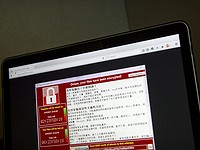Spend enough time online and there's a good chance of falling victim to a cyber attack of some description.
You could have your email or social media account hacked, have your data stolen, encrypted and ransomed off, or even have money pilfered from your bank account.
But while the threats are ever present, becoming a victim isn't inevitable, as long as you take a few measures to safeguard yourself and your data.
"The risk is universal," Michael Kaiser, who heads the National Cyber Security Alliance in the US, told Insider.pro.
"Hackers and cyber criminals, and nation states for that matter, are getting better all the time. The technology is getting better all the time. I think people's behaviour is getting better but the ecosystem is so large that there's always going to be vulnerabilities."
Fortunately there are ways to defend these vulnerabilities. And one of the easiest is among the most effective.
As intrusive as they can be those pop ups alerting you to download the latest update to your OS or application like Skype could save you a lot of pain down the line.
"Software updates can have and often do have security fixes," Mr Kaiser said.
"A known vulnerability that got discovered between updates get patched in the next version. So that's critical."
Remember, the recent WannaCry attack that compromised thousands of people's data was only possible because some Windows users had not installed the latest patch. Those who had were safe.
But just keeping your software up to date is not enough to ward off the cyber crims. There are however, a number of other relatively simple actions that you can take to further protect yourself online.
"Take security precautions, do things like, maybe software, multi factor authentication, update your software and good password practices. There's a huge behavioural part to cyber security. What you click on, what links you go to and what kind of transactions you engage in online," Mr Kaiser said.
"If you have some basic cyber hygiene practices that you use on a regular basis you can have some more confidence about being safe and secure."
Perhaps just as important as the technological side is the "behavioural part", particularly on social networks. Internet users need to take responsibility for their actions online and exercise caution where necessary.
Revealing too much online will make you more vulnerable. Perhaps you should reconsider listing your birthday, phone number, where you work, and every movement on Facebook.
And while you're there make use of the privacy and security controls that many social networks provide unbeknownst to their users.
"Nothing's going to make you 100 percent secure but doing nothing will certainly make you very unsecure," Mr Kaiser said.




